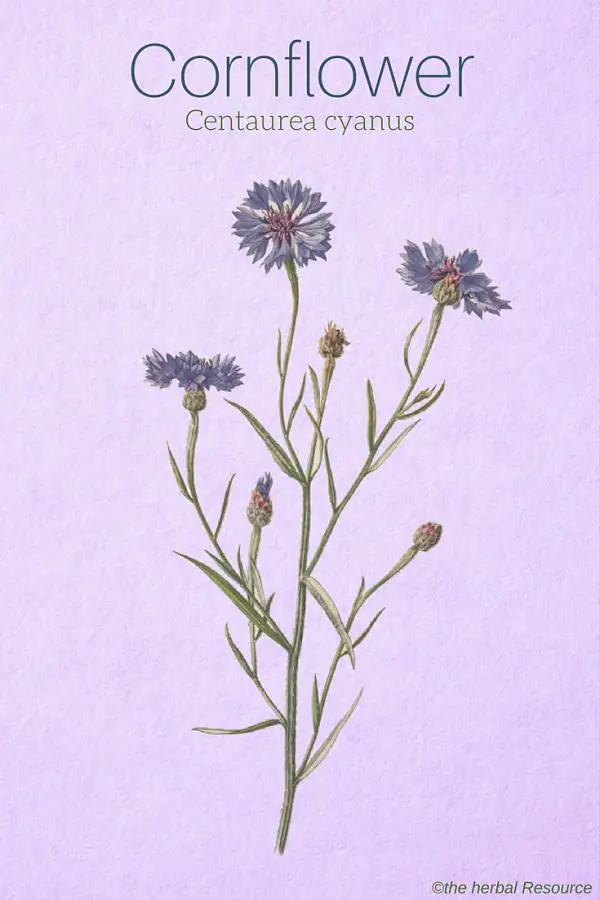Can dietary supplements truly enhance immune function and provide significant health benefits? A bold statement supporting this inquiry is that scientific evidence increasingly validates the efficacy of certain herbal supplements, such as echinacea and cornflower extracts, in bolstering immunity and addressing specific health conditions. These natural remedies have been used for centuries across various cultures, yet their mechanisms and effects are now being rigorously studied to confirm their therapeutic potential.
Echinacea, often referred to as the purple cornflower, has long been celebrated for its immune-boosting properties. Research indicates that it can stimulate white blood cell production and enhance the body's ability to combat infections. This herbal supplement is particularly popular during cold and flu seasons due to its purported ability to reduce the duration and severity of symptoms. Similarly, cornflower (Centaurea cyanus) has gained attention not only for its aesthetic appeal but also for its medicinal applications. Extracts from this plant contain bioactive compounds that may alleviate inflammation and support digestive health. Both supplements demonstrate promising results in clinical trials, although individual responses can vary based on factors like dosage and personal health status.
| Personal Information | Details |
|---|---|
| Name | Echinacea Purpurea & Centaurea Cyanus |
| Origin | Europe and North America |
| Primary Use | Immune system support, anti-inflammatory effects |
| Key Active Ingredients | Caffeic acid derivatives, alkamides, polysaccharides |
| Recommended Dosage | Varies by formulation; consult healthcare provider |
| Side Effects | Rare allergic reactions, gastrointestinal discomfort |
| Professional Recognition | Acknowledged by botanical extract manufacturers [Reference: Botanical Extracts Manufacturing] |
Scientific literature further substantiates the role of these supplements in maintaining overall wellness. For instance, a systematic review published in Nutrients (2022) highlights how specific dietary ingredients, including echinacea, contribute to preserving immune function in healthy individuals. The study emphasizes the importance of standardized formulations to ensure consistency and efficacy. Furthermore, advancements in high-performance liquid chromatography (HPLC) profiling enable precise identification of active components within these botanical extracts, thereby enhancing their reliability as therapeutic agents.
In addition to immune modulation, research suggests that cornflower extract possesses anti-inflammatory properties that could benefit individuals with chronic conditions such as polymyositis and dermatomyositis. These autoimmune disorders involve muscle inflammation and weakness, which may be mitigated through targeted supplementation. A case report documented improvement after using supplements containing spirulina or echinacea, underscoring the potential synergy between different natural compounds in managing complex health issues.
The integration of cornflower petals into yogurt production represents an innovative approach to incorporating beneficial phytochemicals into everyday diets. Studies indicate that consuming yogurt fortified with Centaurea cyanus L. petals enhances gut microbiota diversity and strengthens the immune barrier. This dual action—supporting both digestive and systemic immunity—positions cornflower as a valuable ingredient in functional foods aimed at promoting holistic health.
Despite their widespread use, caution must be exercised when introducing immunostimulatory supplements into one’s regimen. While generally safe for most people, certain populations, including those with pre-existing autoimmune diseases, should consult healthcare professionals before usage. Activation of autoimmunity remains a theoretical concern, albeit rare, necessitating thorough evaluation of individual risk profiles prior to adoption.
As interest in complementary medicine grows, so does the demand for well-researched information about herbal supplements. Resources like the National Center for Complementary and Integrative Health (NCCIH) provide reliable guidance on the usefulness and safety of products like echinacea. Such platforms empower consumers to make informed decisions regarding their health while fostering transparency in the supplement industry.
Ultimately, the convergence of traditional knowledge and modern science paints a compelling picture of the value offered by echinacea and cornflower extracts. By leveraging their unique attributes, individuals can harness nature’s pharmacy to fortify their defenses against illness and optimize their quality of life. However, adherence to professional recommendations and ongoing research efforts remain essential components of responsible supplementation practices.



